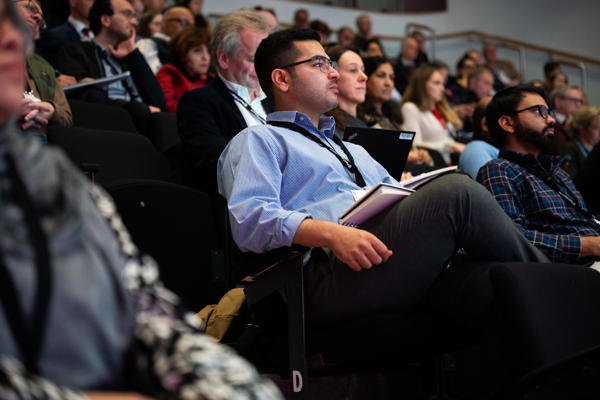Professor Sanjay Agrawal provided expert witness evidence to the committee for the Tobacco and Vapes Bill.
The Tobacco and Vapes Bill was introduced to Parliament in March of this year. It is currently going through committee stage in the House of Commons, with the committee taking evidence from experts.
Welcoming the Bill, Professor Agrawal told the committee that the Bill does well to strike the right balance between regulation to protect young people from vaping while still allowing smokers to use e-cigarettes to quit. “It recognises that vapes are important in helping people to quit smoking, but, by the same token, we all recognise that we do not want to see our children and grandchildren—young people—take up vaping,” he said.
When asked about the harms of vaping on those who have never smoked, Professor Agrawal said: “E-cigarettes expose people who use them for a short time to quit smoking—which is the only thing we advocate them for—to a much narrower band of toxin, and the degree of exposure is lower. In comparison with tobacco, it is much lower, but in comparison with not using either, unsurprisingly the levels of toxins are higher. The RCP is very clear about that: if you do not smoke, do not vape.”
Professor Agrawal stressed the urgency of getting the Bill through parliament as quickly as possible to 'stop the 350 young people who take up smoking every day from doing so as soon as we possibly can. We know that two out of three of them will die as a result of smoking.'
He also gave evidence on the co-morbidities that those who are addicted to tobacco so often live with: “As well as having lung cancer, they may have a kidney cancer, they may have heart disease, as well as COPD. If they have one of those things, we can manage that, but unfortunately, the combination makes people multi-morbid and frail, and it impacts their ability to have treatment for the most serious of those conditions.”
Professor Agrawal made it clear that smoking is not a matter of free choice, but rather ‘a lethal addiction’ that removes people’s choice entirely.
The committee were concerned about the number of young people and never smokers taking up vaping and asked how best to deal with that. In response, Professor Agrawal said: “The tobacco industry has a playbook on how it attracts young people to smoking, and it is not dissimilar to vaping. Billboards, influencers on social media, brightly coloured, garish packaging and the names of flavours are all used to appeal to young people. The provisions in the Bill will provide the powers to restrict that. That is really important and is exactly what we should be doing.”
Lastly, Professor Agrawal went on to stress the link between tobacco addiction and poverty: “Helping adults to stop smoking increases household income and reduces child poverty. Action on Smoking and Health has estimated that something like 250,000 children live in households that are below the poverty line because of adults spending on smoking. Stopping smoking has myriad benefits, whether helping children, reducing poverty or reducing health inequality.”
Watch the full evidence session here.




